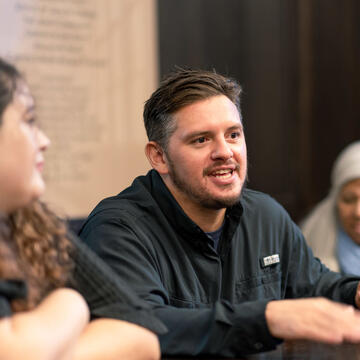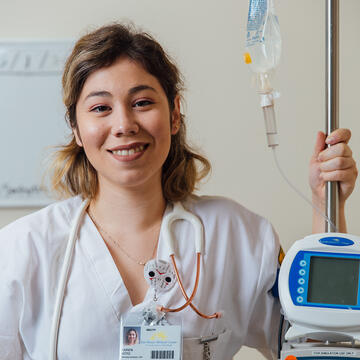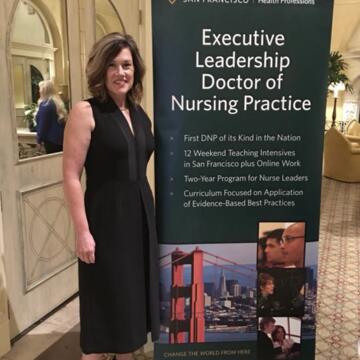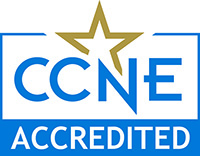

Family Nurse Practitioner, DNP
The Family Nurse Practitioner (FNP) program prepares registered nurses with a baccalaureate or master's degree to function as Advanced Registered Nurse Practitioners in the FNP role.
What Can I Do With an FNP Degree?
As an FNP, you will be trained to conduct comprehensive health assessments, diagnose and manage acute illnesses (with appropriate referral), manage chronic conditions, and serve as the primary health care providers in many settings. You will design models of health care delivery, evaluate clinical outcomes, identify and manage the health care needs of diverse populations, and use technology and information to transform the field.
In addition, you will be able to provide patient care in a variety of practice settings, including homes, hospitals, offices, schools, community health centers, rural health centers, public and private clinics, and private practices.
-
Upon completion of the DNP program the graduate will be able to:
- Combine knowledge in nursing, ethics, and the medical sciences to develop and evaluate practices and models of patient care delivery
- Develop and evaluate effective strategies for managing ethical dilemmas present across the health care, technology, and research fields
- Use analytic methods to design, implement, and evaluate best-practice models for patient care and care delivery
- Effectively develop, implement, and evaluate evidence-based approaches to advance the field and systems of health care delivery
- Demonstrate leadership in the development and implementation of institutional, local, state, federal, and international health policy
- Advocate for social justice, equity, and ethical policies in health care
- Advance the effective use of health care information systems to ensure high-quality outcomes
- Effectively lead quality improvement and patient safety initiatives
- Effectively communicate and collaborate with health care teams in developing and implementing organizational and practice models, health policy, and standards of care
- Analyze and synthesize various data related to patient health information
- Conduct a comprehensive assessment of health in complex situations, incorporating diverse approaches to design, implement, and evaluate interventions
- Analyze the relationship among practical, organizational, population, fiscal, and policy issues to educate individuals and colleagues effectively
- Develop relationships and partnerships with patients and other professionals to facilitate optimal patient care outcomes
- Advance the mission and core values of the University of San Francisco
In addition to the DNP Program Outcomes, upon completion of the FNP program the graduate will be able to:
- Demonstrate the specialized body of knowledge and clinical competencies required to assume an advanced practice nursing role, including theoretical foundation, evidence based clinical practice and inter and intra professional collaboration
- Demonstrate the ability to provide quality health care services that reflect cultural competence, social justice, fiscal stewardship, and ethical responsibility, representing the Jesuit mission of a more humane and just world
- Create and implement holistic plans of care that competently assess, diagnose, treat, and evaluate patients with a focus on health promotion, disease prevention, and patient centered care
- Demonstrate the ability to integrate doctoral scholarship and leadership skills in the delivery of care
Move Forward in Your Nursing Career
Complete the program in four years with a BSN and three years with a master's degree. You can also earn a Master of Public Health along the way, saving time by streamlining coursework for both degrees. If you’re a doctoral-prepared nurse who wishes to practice as a FNP, you can add the certificate to your degree.
Hybrid Courses
Engage in a curriculum thoughtfully balanced between online and classroom learning. Courses are offered year round during fall, spring, and summer semesters. Practicum placements, when needed, are facilitated by the program.
Teaching Weekend Schedule
Fridays and Saturdays during the hours of 8:00 am to 9:00 pm. Lunch hour is observed from 12:00 - 1:00 pm.
NP courses
N706 Advanced Pathophysiology and N707 Applied Pharmacology will meet on Fridays synchronously online during teaching weekends.
N7220 Advanced Physical Assessment Practica will meet in person on teaching weekends.
Family Nurse Practitioner Clinical Courses
N7230/N7240, N7250/N7260, N7270/N7280, and N7290 will meet in person on teaching weekends.
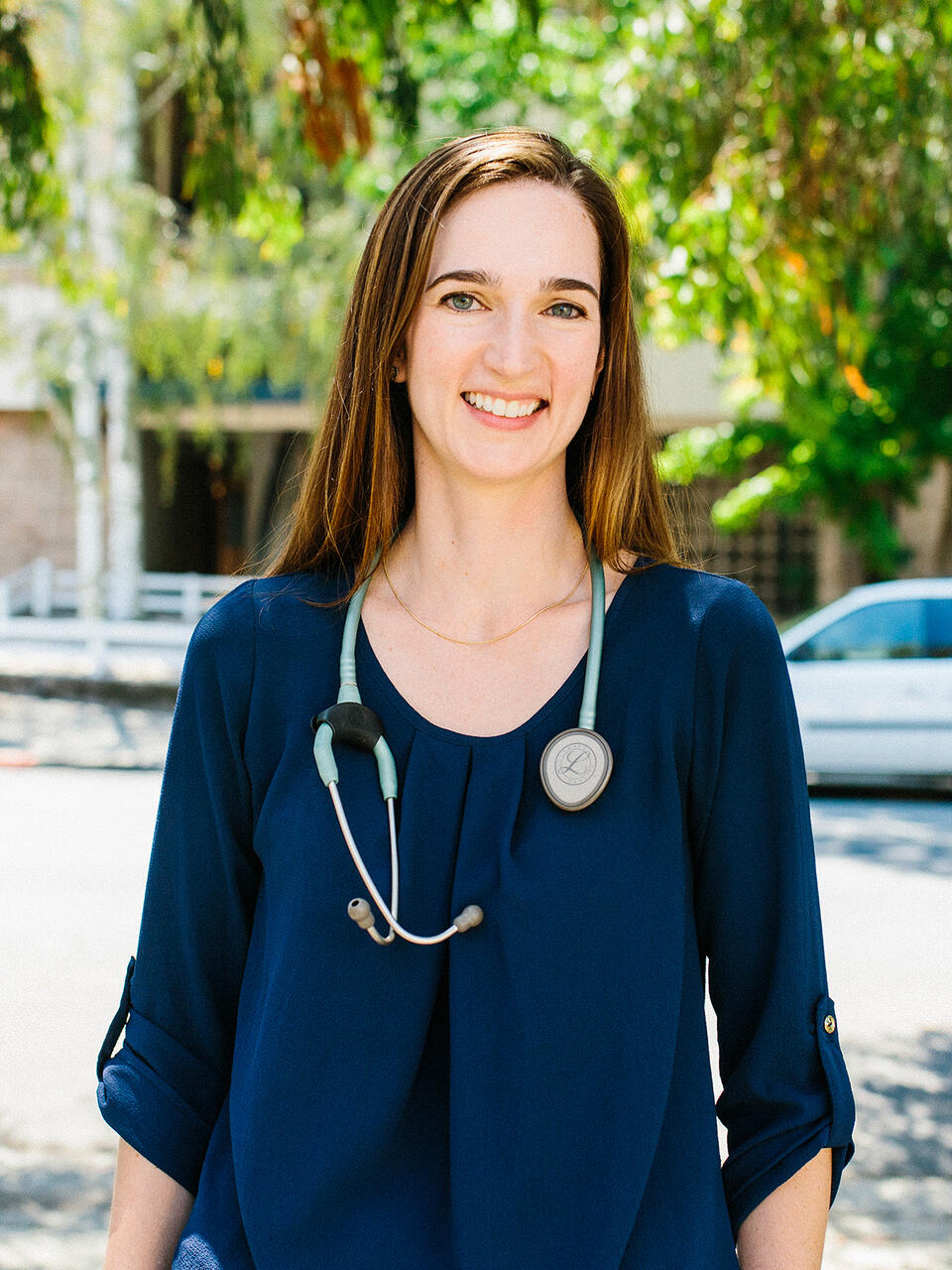
Sarah Hubbell
Professor
The emphasis on social justice is a big part of what drew me to USF. The FNP program combines family nurse practitioner preparation with a rich curriculum of ethics, epidemiology, health systems, and evidence-based practice. You learn not only to be nurse practitioners, but also to be agents of change in health care."
Sarah Hubbell
Professor
USF Preceptor Program
The USF Preceptor program helps our mission to provide students with the academic and personal skills necessary for success. Preceptors play a vital role in the education of our students and the continued development of the profession.
SONHP Welcomes Kimberly Perris
We are fortunate: Dr. Perris, a Double Don, is back at USF SONHP!
Student Projects & Publications
All Doctor of Nursing Practice (DNP) students must implement an evidence-based quality improvement project designed to improve practice in their area of concentration. The project is guided by their faculty DNP Committee Chairperson and Committee and demonstrates their ability to apply the principles of evidence-based practice, through problem identification, project development and proposal, and the implementation and evaluation of practice, quality/process or systems improvements.

USF Nursing Accreditation
The baccalaureate, master’s, and Doctor of Nursing Practice programs and the post-graduate APRN certificate programs at the University of San Francisco School of Nursing and Health Professions are accredited by the Commission on Collegiate Nursing Education. All SONHP nursing programs are also approved by the California Board of Registered Nursing.
State Authorization
Please check our State Authorization Status List for the states and territories from which we can enroll students in specific online degree programs.
Family Nurse Practitioner (FNP-BSN, FNP-MSN, FNP Cert)
The USF Family Nurse Practitioner DNP program is intended to lead to national Family Nurse Practitioner Board Certification by the American Nurses Credentialing Center (ANCC) and the American Association of Nurse Practitioners. The USF Family Nurse Practitioner DNP program is intended to lead to a state-issued Advanced Practice Registered Nurse (APRN) license or state-issued Nurse Practitioner (NP) license or national population specific NP certification. If you have questions about pursuing a state-issued APRN or NP license upon completion of the program, please reach out to your program administrator.
Take the Next Step
Admissions & Aid
Family Nurse Practitioner, DNP
San Francisco, CA 94117
Monday–Friday
8:30 a.m. – 5 p.m.



